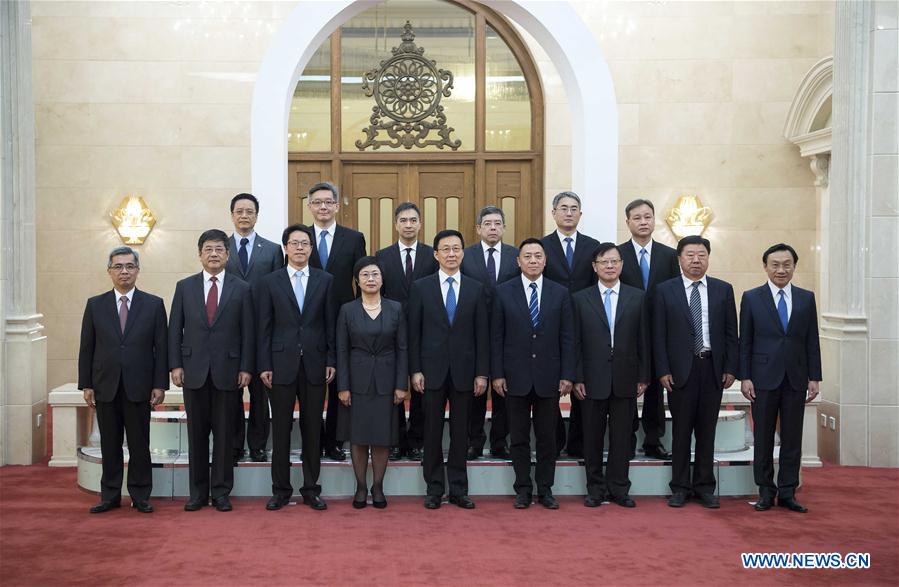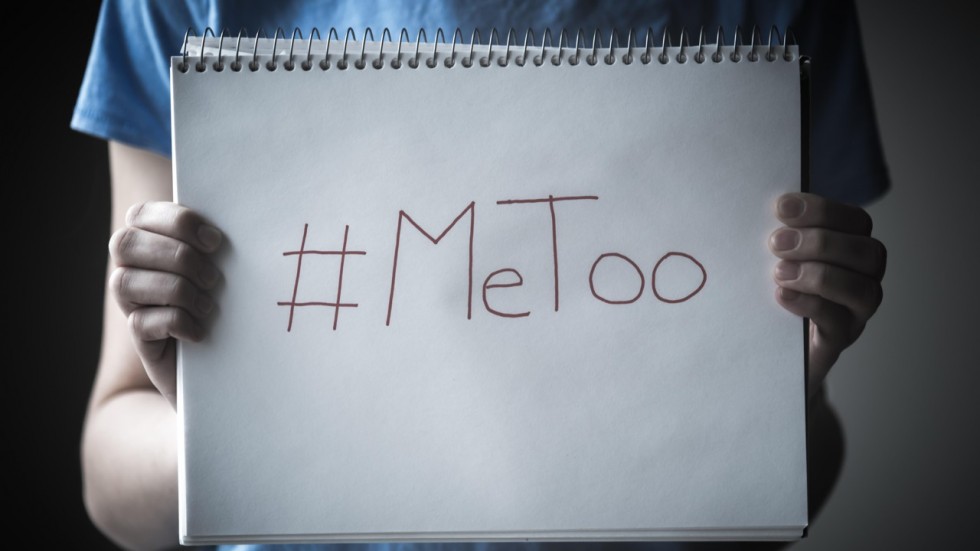 Possible NAFTA deal could come in next 10 days, says Mexican expert
Possible NAFTA deal could come in next 10 days, says Mexican expert Trump, Macron attend joint press conference in Washington D.C.
Trump, Macron attend joint press conference in Washington D.C. Top legislator urges NPC Standing Committee members to improve competency via study
Top legislator urges NPC Standing Committee members to improve competency via study China, Micronesia agree to expand cooperation
China, Micronesia agree to expand cooperation Vice premier meets with Macao officials
Vice premier meets with Macao officials
Situation of Chinese women about sexual harassment in workplace

While the #MeToo movement resulted from the scandalous Weinstein incident has inspired some women, situation of sexual harassment of Chinese women in workplace still needs improvement
Zhang Cheng says she was in her boss’ hotel room using his hairdryer – to save time as she was sharing a room with two women colleagues – when he came out of the bathroom naked after a shower and hugged her, begging her to stay.
She pushed him away and rushed out of there, but the incident left her scared and on medication for depression.
Zhang did not report her boss – a husband and father – to the company or police.
That was more than two years ago, and Zhang, who is now 26 and still works at the same private company, an industry leader in Shanghai, believes even if she reported the incident, her employer would not help her. With no specific law against sexual harassment in China, she sees no point going to the police either.
“They do show some care for their staff, but it’s limited to superficial benefits such as pay and leave. They wouldn’t get involved in something like sexual harassment,” said Zhang, who did not want to use her real name or identify the company.
While the global #MeToo movement has encouraged some Chinese women to speak out, particularly on university campuses, those like Zhang who have experienced sexual harassment in the workplace have mostly stayed silent, and company policies have remained unchanged.
They often choose to say nothing because they are worried about career development and fear they will not get a sympathetic response, victims and activists say.

The media is one industry where the problem is prevalent, according to a recent survey by Guangzhou journalist and activist Huang Xueqin, who has experienced sexual harassment herself. Of the more than 400 women journalists she polled, over 80 per cent said they had been subjected to varying degrees of sexual harassment in the workplace.
Compared to other professionals, “journalists are often more aware of how to look after themselves, have more channels to safeguard their legal rights, know better about speaking out, and they are bolder and more open-minded”, Huang said.
Yet in the survey group, only a small proportion of the women had spoken out. The results of the poll, released last month, showed that just 3.2 per cent of respondents had reported incidents to management or human resources, and less than 1 per cent went to the police.
One of the main reasons women who have been harassed in the workplace choose to stay silent is that there could be a greater cost if they do speak up, compared to, say, a university student, Huang said.
“Because if the case is not properly handled, the victim may find they’re unable to work in the industry any more,” she said.

